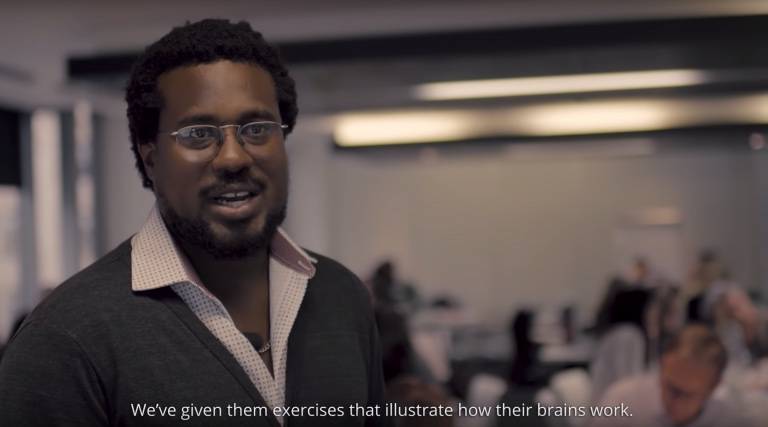Unilever: the Unstereotype Experiment
Academics from the Faculty of Brain Sciences conducted a breakthrough study with the consumer goods giant Unilever. The results showed a 35% reduction in stereotypical thinking in just one day.

7 January 2021
Unilever’s renowned Unstereotype initiative seeks to eradicate biases related to gender, age, background or orientation from its marketing, and that of the wider ad industry. Aline Santos, Unilever’s EVP of Global Marketing and Chief Diversity & Inclusion Officer, said: “We are constantly innovating to find new ways to accelerate Unstereotype across our workforce and in our advertising. Becoming conscious of our blind spots and the biases that are holding us back is fundamental, but unconscious bias training has its limitations.”
Wanting to adopt a fresh approach, Unilever sought out UCL to investigate how science could be used to prevent stereotyping. Dr Lasana Harris and Dr Gorkan Ahmetoglu from the UCL Division of Psychology and Language Sciences (PALS) devised the Unstereotype Experiment. They conducted a clinical trial with over 60 Unilever marketing staff and advertising agency partners in London, New York and Rotterdam. The study aimed to challenge the marketing professionals’ perceptions of themselves and, consequently, other people. First, DNA testing enabled the participants to reappraise their sense of identity, and many were surprised by their origins revealed by their DNA profile. Then, the participants attended a behavioural change workshop.
The results showed that the likelihood of stereotyping people was reduced by 35% in just one day. Unilever was encouraged to explore what the long-term impact could be and has rolled out further training. Reducing the reliance on stereotypes was also proven to drive creativity. The study revealed the advertising teams had achieved a “significant change in original thinking”.
This pioneering experiment in marketing science hit the headlines in the global business press. The YouTube video was watched over 53,000 times.
 Close
Close

